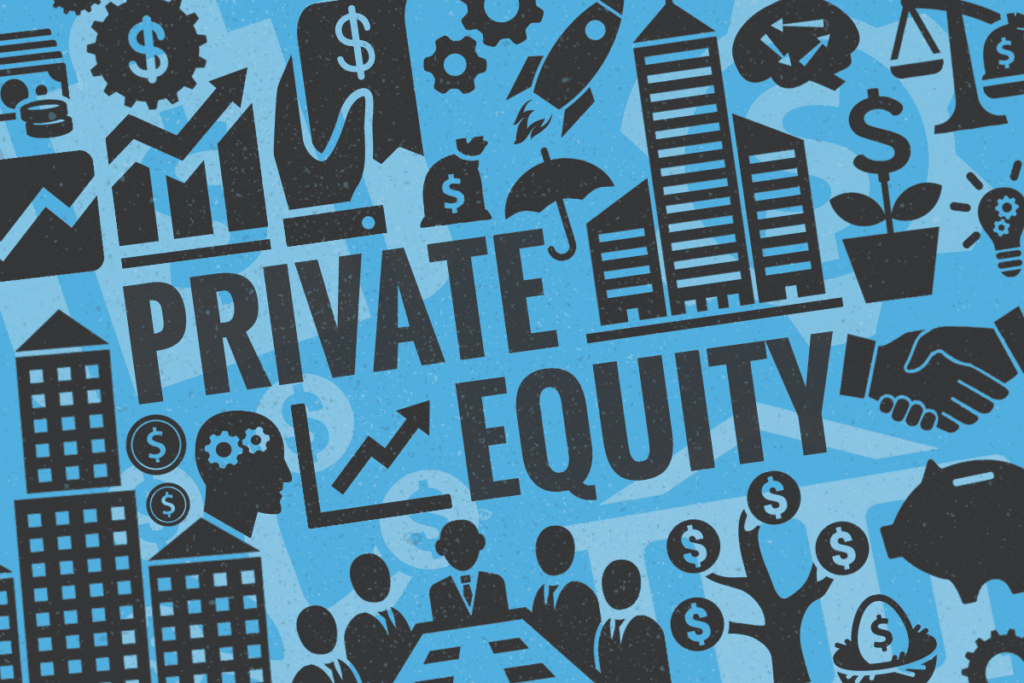Understanding equities is crucial for effective international stock investments that provide ownership in global companies and potential for long-term growth.
In this article, we will primarily answer the question what are equities? as well as give examples and other important information.
If you are looking to invest as an expat or high-net-worth individual, which is what I specialize in, you can email me (advice@adamfayed.com) or use WhatsApp (+44-7393-450-837).
What Are Equities: The Basics
Depending on the situation, the definition of the word equity would vary. Equities are just shares of a company’s ownership when referring to the stock market. As a result, when a corporation offers equity, it is selling a portion of its ownership. On the other hand, when a firm issues bonds, it is borrowing money from investors.
The terms shareholders’ equity, book value, and net asset value are also occasionally used to refer to this idea. The exact definitions of these terms may vary depending on the context, but generally speaking, they refer to the value of an investment that would remain after paying off all liabilities associated with that investment.
In real estate investing, the term equity is sometimes used to describe the difference between a property’s fair market value and the outstanding balance of any mortgage loans secured by it.
What Are Equities: Equities vs Stocks
Even while the words equities and stocks are sometimes used interchangeably, they actually have slightly distinctive meanings. In essence, a stock is one of the most popular forms of equity, with equity denoting the overall idea of ownership.

What Are Equities: Shareholders Equity
Equity, also known as shareholders’ equity or owners’ equity for privately held businesses, is the sum of money that would remain in the hands of a company’s shareholders in the event that all of its assets were sold off and its liabilities were fully settled. It is the worth of company sales less any obligations owing by the company that were not transferred with the sale in the case of an acquisition.
Additionally, a company’s book value may be represented through shareholder equity. Equity may occasionally be given in exchange for cash. Additionally, it symbolizes the proportionate ownership of a company’s shares.
One of the most frequently used pieces of information by analysts to evaluate a company’s financial health is equity, which can be found on a company’s balance sheet.
How Does Shareholder Equity Work?
The assets-minus-liabilities shareholder equity equation creates a clear picture of a business’s finances that is simple for investors and analysts to understand by comparing specific numbers reflecting all that the business owns and everything it owes. Equity is defined as a company’s capital that is raised and then utilized to fund operations, invest in projects, and buy assets.
Typically, a company can raise capital by issuing debt like loans or bonds, or by issuing equity, which is through selling stock. Equity investments are frequently sought after by investors because they offer a better chance to profit from and contribute to a company’s expansion.
The value of an investor’s interest in a company, expressed by the percentage of its shares, is what makes equity significant. Shareholders have the chance to receive dividends and capital gains when they own firm shares. The ability to vote on corporate decisions and board of director elections is another benefit of owning equity. These benefits of equity ownership encourage shareholders to maintain an interest in the business.
Equity among shareholders may be positive or negative. If it’s positive, the business’ assets exceed its liabilities. If the balance is negative, the company’s liabilities exceed its assets. If such liabilities persist to be more than what a firm’s assets can cover for a while, it will be regarded as balance sheet insolvency.
Investors typically perceive businesses with low shareholder equity as dangerous or hazardous ventures. Shareholder equity by itself does not provide a reliable indication of a company’s financial health; nevertheless, when combined with other instruments and measures, the investor can examine an organization’s health with accuracy.
What Are the Components of Shareholder Equity?
The portion of net earnings that was not distributed to shareholders as dividends is known as retained earnings and is a component of shareholder equity. Since retained earnings are the sum of all profits that have been set aside or kept for future use, think of them as savings. As long as the business keeps reinvesting a portion of its earnings, retained earnings increase.
The amount of compounded retained earnings may eventually surpass the equity capital invested by stockholders. For long-running businesses, retained earnings typically make up the majority of stockholders’ equity.
The stock that the corporation has repurchased from current shareholders is known as treasury shares or stock (not to be confused with US Treasury bills). Companies may repurchase shares if management is unable to use all of the equity capital at its disposal in ways that could produce the best results.
In contrast to the accounts for investor capital and retained earnings, treasury stock is used to record the dollar value of shares that corporations buy back. These shares are known as treasury shares. When businesses need to raise money, they might reissue treasury shares to stockholders.
Many believe that stockholders’ equity represents a firm’s net assets, or, to put it another way, the sum that shareholders would receive if the company sold off all of its assets and paid off all of its debts.
What Are Equities: Private Equity
The market value of equity in a publicly traded investment can easily be determined by examining the share price and market capitalization of the company. Since there is no market mechanism to evaluate value for private entities, additional valuation forms must be used.
Private equity, as a generic term, refers to such an assessment of privately held businesses. When liabilities are subtracted from assets to arrive at an estimate of book value, stated equity on the balance sheet is what is left over. In this case, the accounting equation still holds.
Then, privately held businesses can find investors by offering direct shares for sale through private placements. Institutions including insurance companies, pension funds, university endowments, and accredited individuals may be among these private equity investors.
Private equity is frequently offered to funds and investors who focus on making direct investments in private enterprises or who take part in leveraged takeovers of publicly traded corporations. A corporation borrows money from a private equity firm to finance the purchase of a division of another company in a leveraged buyout deal.
Usually, the loan is secured by the cash flows or the assets of the target company. Private loans known as mezzanine debt are frequently given by commercial banks or mezzanine venture capital firms. Mezzanine deals frequently combine debt and equity in the form of warrants, common stock, preferred stock, or subordinated loans.
Private equity is utilized at various stages of a company’s life cycle. A young business that has no sales or earnings typically cannot afford to borrow money, therefore it must obtain funding from friends, family, or individual angel investors. When a company has finished developing a product or service and is prepared to launch it on the market, venture capitalists come into the picture.
Large tech firms such as Google, Apple, Amazon, and Meta started with venture capital funding.

Types of Private Equity Financing
In exchange for an early minority share, venture capitalists supply the majority of private equity financing. A venture investor may occasionally accept a position on the board of directors for one of its portfolio firms, ensuring an active participation in managing the business.
Venture capitalists aim to exit investments in five to seven years after making them. One of the most frequent forms of private equity financing is a leveraged buyout, which can take place as a business ages.
Private Investment in a Public Company (PIPE) is the final variety of private equity. A PIPE is when a private investment firm, mutual fund, or other eligible investors buy shares of stock in a business at a price below the share’s current market value in order to raise money.
Private equity is not available to the average person, in contrast to shareholder equity. Private equity or venture capital partnerships are only open to accredited investors, defined as people with a net worth of at least $1 million. Private equity exchange-traded funds (ETFs) provide an option for investors who don’t meet this requirement.
What Are Equities: Preferred Stock
Preferred stockholders have greater access to earnings and assets than common stock holders. Regular dividend payments (often at a predetermined rate) are more likely to go to preferred shareholders, who also receive their money before holders of common shares. The problem is that owners of preferred shares won’t see their dividends increase as the business gets more prosperous because dividend rates for preferred shareholders are typically fixed.
Preferred shareholders have priority over regular shareholders in the case of bankruptcy or liquidation and are entitled to assets and earnings. Bondholders are at the top of the list of people who can claim a company’s assets in the event that it goes out of business since they have lent the company money. The next group is the preferred shareholders, then the common shareholders.
What Are Equities: Home Equity
The value that comes with home ownership is roughly comparable to home equity. When the outstanding mortgage debt is subtracted from the value of a home, the equity it holds represents the portion that the owner owns outright. Equity in a home or piece of property results from mortgage payments, down payments, and appreciation in the value of the property.
The owner can leverage the equity in their property to obtain a home equity loan, also known as a second mortgage or a home equity line of credit, and is frequently their biggest source of collateral. An equity takeout is the removal of funds from a property or a loan secured by it.
What Are Equities: Brand Equity
It’s crucial to keep in mind that when calculating an asset’s equity, especially for larger organizations, this asset may encompass both tangible assets, like real estate, and intangible assets, like the company’s reputation and brand identification. A company’s brand can acquire intrinsic worth via years of marketing and the growth of a clientele. The value of a brand in comparison to a generic or store-brand version of a product is measured and is sometimes referred to as brand equity.
For instance, because they prefer the flavor or are more accustomed to it, many soft drink lovers will choose a well-known soda brand over a store-brand cola. If a 2-liter bottle of store-brand soda costs $1 and a 2-liter bottle of a recognized brand costs $2.5, the latter has a brand equity of $1.5.
Negative brand equity exists when consumers are more willing to pay more for a generic or store-brand goods than they are for a specific brand name. Negative brand equity is uncommon but can happen as a result of negative news like a product recall or an accident.
What Are Equities: Return on Equity
A metric of financial performance known as return on equity (ROE) is obtained by dividing net income by shareholder equity. ROE may be seen as the return on net assets since shareholder equity is equal to a company’s assets less its debt. ROE is regarded as a gauge of how well management generates profits from a company’s assets.
How Investors Use Equity
The idea of equity is crucial for investors. An investor might use shareholders’ equity as a benchmark when examining a firm to determine whether a particular purchase price is reasonable. An investor could be hesitant to pay more than that valuation if, say, the firm has typically traded at a price to book value of 1.5, unless they believe the company’s prospects have significantly improved.
On the other hand, if the price paid is sufficiently low in relation to the equity of the company, an investor can feel safe purchasing shares in a relatively weak company.

What Are Equities: Advantages of Equity Investments
- The potential to grow the value of the invested principal is the main advantage of an equity investment. Capital gains and dividends are two ways that this is manifested.
- For a minimum initial commitment, an equity fund provides investors with a diverse investing alternative.
- An investor would need to make a considerably larger and more labor-intensive capital investment if they wished to attain the same amount of diversity as an equity fund.
- If a corporation wants to raise more money through the equity markets, investors may be able to expand their investment through rights shares.
What Are Equities: Risks of Equity Investments
Because of the potential for big returns, many invest in equities. Note, however, that there are risks involved with all investments. Your equity exposure in your investment portfolio is another way of saying how exposed you are to the possibility of losing money if the value of the stocks you hold drops.
Market risks have a direct impact on stock investments. Market forces frequently cause stocks’ values to increase or decrease. As a result, market risk puts investors at danger of losing some or all of their investment.
According to traditional thinking, young individuals can afford a greater equity exposure, and as stocks have the potential to generate substantial returns over time, they are likely to prefer a greater allocation of them. However, equity exposure starts to pose a greater risk as you get closer to retirement. Because of this, when people age, many switch at least some of their stock investments to bond investments.
Additional risk categories that could impact equity investing include:
- Credit risk: a business running the danger of defaulting on its debt.
- Foreign exchange risk: changes in the value of several international currencies could affect the value of a business.
- A company’s inability to pay its short-term liabilities presents a liquidity risk.
- Political risk: a country’s political instability or changes could have an adverse effect on a company’s profits.
- Economic concentration risk: if a corporation is overly reliant on a single entity, industry, or nation, its value may decline (putting all its eggs in one basket). If that factor’s value declines, the company will suffer significantly.
- The risk of inflation: As inflation surges, a firm’s value could fall, trimming its value.
If you want to learn more about investments, you can read our articles like best investment options for Australian expats in 2021, what are the best investment options for Canadian Expats in 2021, and what are the best investment options for UK expats in 2022.
Pained by financial indecision? Want to invest with Adam?

Adam is an internationally recognised author on financial matters with over 830million answer views on Quora, a widely sold book on Amazon, and a contributor on Forbes.



